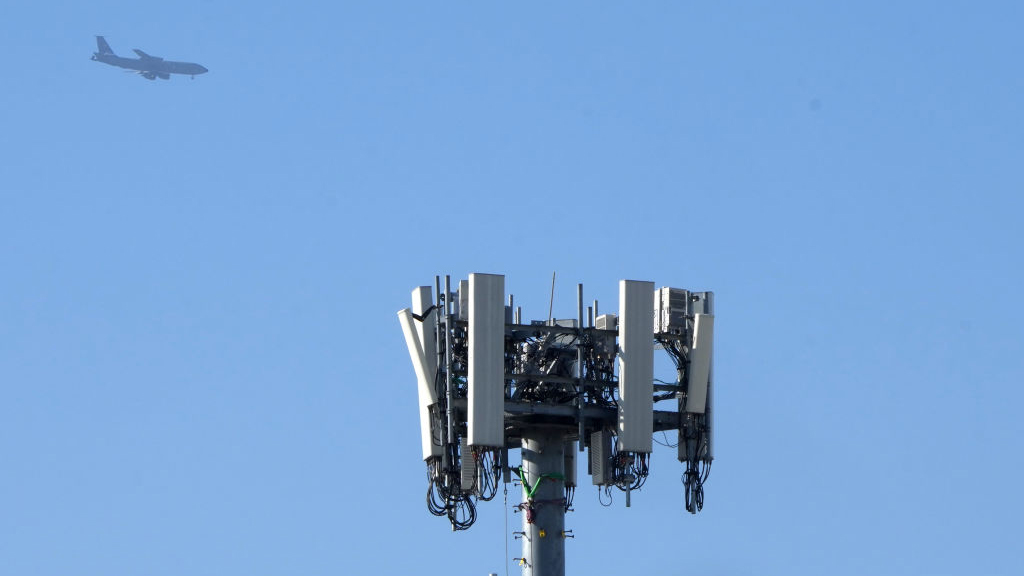US 5G operators welcome new freedoms as FAA, airport concerns approach end
Airlines will have until 2024 to upgrade aircraft hardware potentially susceptible to 5G interference


The Federal Aviation Administration (FAA) has given airlines until 2024 to upgrade aircraft hardware for 5G resistance, which will allow telcos to expand 5G deployment in and around airports.
Once the deadline is reached, mobile network operators and other telcos seeking to expand 5G communications will be allowed to freely use the C-band 5G spectrum at airports and expand base stations across these sites.
A notice of proposed rulemaking has been laid out by the FAA, which would require radio altimeters in all planes to be made 5G resistant by 1 February 2024. It follows years of delays in which telco expansion into 5G C-band was limited around airports, and shifts the burden for mitigation from telcos to the airlines.
The notice lays out a concrete timeline the FAA will follow to safely facilitate 5G rollout alongside aircraft hotspots, a significant step after years of delay even as other 5G-enabled countries saw no aircraft interference.
The C-band spectrum in the 3.7-3.98GHz range is important for a range of 5G tasks, such as fixed wireless access for businesses and the facilitation of internet of things (IoT) technology. Expansion of C-band coverage will lead to better network coverage for businesses, as well as for consumers.
It is estimated that 180 planes will require complete replacement of radio altimeters while 820 planes will need to have altimeter filters fitted, at an estimated cost of $26 million.
Radio altimeters measure the distance between an aircraft and land, and are typically used during low-visibility landings such as during poor weather conditions. They operate at 4.2-4.4GHz, close to the bands used for 5G, and approximately 100 cases of altimeter disruption have been identified by the FAA in which it could not rule out 5G C-band interference.
Get the ITPro daily newsletter
Sign up today and you will receive a free copy of our Future Focus 2025 report - the leading guidance on AI, cybersecurity and other IT challenges as per 700+ senior executives
In the proposal document [PDF], the FAA stated that airlines will be required to cease operations such as low-visibility landings in the presence of 5G C-band transmissions at 5G C-band-mitigated airports, unless aircraft use a 5G-tolerant altimeter.
Concerns were raised in 2021 that C-band 5G communications could interfere with the radio altimeters of commercial and cargo aircraft.
Complaints from Boeing and Airbus led to AT&T and Verizon agreeing to delay 5G rollout near airports and reduce base station emission power.
At the time, AT&T said that it was “frustrated by the FAA's inability to do what nearly 40 countries have done, which is to safely deploy 5G technology without disrupting aviation services”.
RELATED RESOURCE

IT best practices for accelerating the journey to carbon neutrality
Considerations and pragmatic solutions for IT executives driving sustainable IT
Airlines had described the rollout of 5G as "catastrophic", but the majority of planes in operation across the US are already unaffected by the frequencies utilised by 5G masts.
The FAA predicts that 19 more telcos, in addition to AT&T and Verizon, will be operating 5G C-band networks following the June 2023 deadline.
Verizon has stated that 90% of its planned C-band spectrum services are being rolled out across the US, indicating a sizeable percentage of operations that will be freed up once the FAA’s buffer zones are no longer required.
Euronews reported that trade association and lobbying group Airlines for America stated that “carriers are working diligently to ensure fleets are equipped with compliant radio altimeters, but global supply chains continue to lag behind current demand”.
“Any government deadline must consider this reality.”
Beyond the immediate risk of aircraft communications being disrupted by 5G, the FAA has considered the long-term impact of desensitisation to altimeter warnings by crew caused by widespread 5G coverage.
Regular warnings from the safety systems that do not affect flight safety may nonetheless make crews slower to react in the event of a real emergency.
The FAA is set to take comments on its notice for 30 days, in which time lobby groups from both the telcos and airlines will make their cases heard.

Rory Bathgate is Features and Multimedia Editor at ITPro, overseeing all in-depth content and case studies. He can also be found co-hosting the ITPro Podcast with Jane McCallion, swapping a keyboard for a microphone to discuss the latest learnings with thought leaders from across the tech sector.
In his free time, Rory enjoys photography, video editing, and good science fiction. After graduating from the University of Kent with a BA in English and American Literature, Rory undertook an MA in Eighteenth-Century Studies at King’s College London. He joined ITPro in 2022 as a graduate, following four years in student journalism. You can contact Rory at rory.bathgate@futurenet.com or on LinkedIn.

